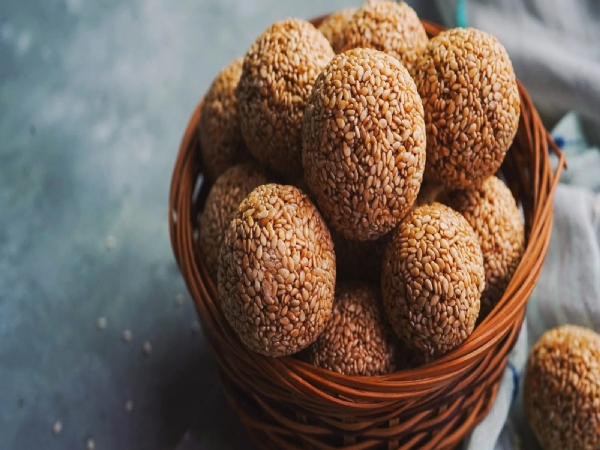This is why we eat Til and Gur on Makar Sankranti!
It is said that both of these ingredients - Til and Gur - have quite a long shelf life, hence sweets made using them last longer.
Total Views |
Makar Sankranti, which will be celebrated on January 14, is a festival that coincides with several harvest festivals from across the country during the same time with unique regional variations. Be it Punjab's Lohri, Tamil Nadu's Pongal, or Assam's Bhogali Bihu, these all are harvest festivals that mark significant seasonal shifts around this time. This auspicious day marks the arrival of spring in India.

According to the Hindu calendar, the festival is known to bring happiness of getting new crops for farmers, signifying the end of winter, making the day last longer than night. It is said that the day is also good for all of us, as it is meant to be healthy in multiple ways. Apart from this, Bharat witnesses a lot of fun, today as the skies in Maharashtra and Gujarat are filled with kites, and down south in the country, the roads are filled with Rangoli and traditional food is made.
Now, when one says traditional food the name of Til Gur pops up! The combo of Til and Gur actually comes from the Maharasthian phrase 'Til, gud ghya ni god god bola'. This is a common expression used to greet family and guests in Marathi households during Sankranti celebrations. The expression literally means 'Eat til and gur and speak sweet'.
It is said that both of these ingredients have quite a long shelf life, hence sweets made using them last longer. In terms of Hindu mythology, the god Yama blessed the sesame seed and hence they are regarded as the symbols of immortality. The seed was supposed to have originated when drops of sweat trickled from Vishnu and fell on earth.
Now, this is the reason why one can easily store Til laddoos, Gajak and Chikki for a longer time without worrying about them going bad. In fact, Til and Gur are much more than just festive ingredients because they hold a strong cultural and significant link with Makar Sankranti celebrations.
Also Read: Makar Sankranti: The Festival Of The New Beginning
In Ayurveda, they are referred to as two of the most winter-perfect foods that help keep the body warm and also increase immunity at the same time. The oil present in Til helps in generating body heat, which keeps the internal body temperature from dipping down too much. On the other hand, the iron and vitamin C content in Gur has also been used as a traditional remedy for respiratory and throat disorders.
Further, according to religious beliefs, sesame seeds are said to be blessed by Lord Yama (God of Death) and are hence referred to as the seeds of immortality. It's also believed to be the vehicle or the food of the departed souls. Hence, black sesame seeds are used while performing Tarpan, a ritual meant to pay ode to dead ancestors.
Also Read: On this Lohri, remembering Dulla Bhatti who fought against the Mughals
Til is also significant because it is known for its myriad health benefits. It's packed with calcium, magnesium, Vitamin B-6, Iron, dietary fibre, protein and several other nutrients. So, from Til Poli to the classic Til Laddoos or Gajak or Tilkut, there are a plethora of options to try this festive season.
Here's wishing all of you a very happy Makar Sankranti!


